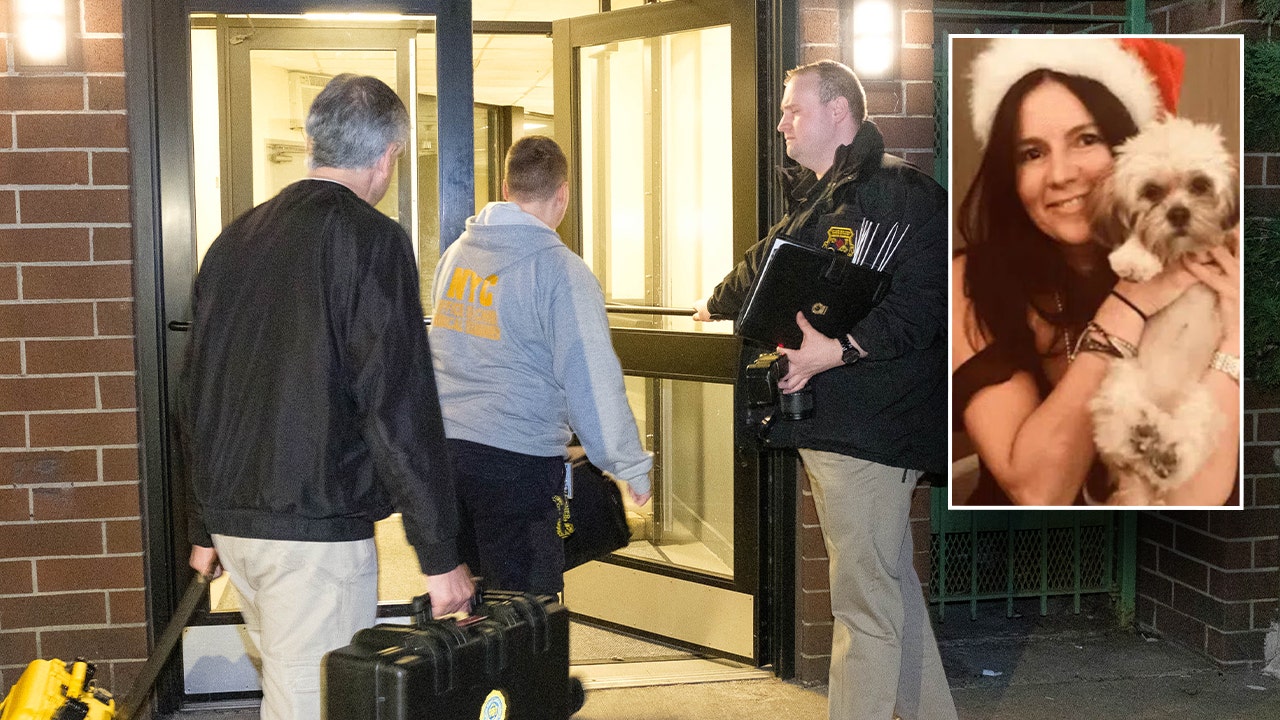A year ago, few economists believed that President Biden could come before Congress and make the boast that he did last night: “I inherited an economy on the brink,” he said. “Now our economy is literally the envy of the world.”
Back then, many experts expected a recession. They worried that America’s central bank, the Federal Reserve, would have to crush the economy to reduce inflation. Instead, unemployment is near its lowest point in half a century. Wages have risen faster than prices. Inflation has come down to more manageable levels.
Before the biggest audience he’ll address until his nomination convention this summer, Biden was able to argue he had saved America from economic ruin. Today’s newsletter will look at the surprisingly strong state of the economy — and Biden’s role in its rebound. (Below, we also cover other highlights from last night’s speech.)
Yes, Biden may claim too much credit. Presidents don’t control the U.S. economy. But they also tend to receive too much blame when it struggles. And Biden’s approval ratings are weak partly because Americans have been unhappy with the high inflation of the past few years. Central to his campaign for re-election is an effort to persuade voters that the economy has turned a corner.
Biden’s contribution
Here is the case in favor of Biden’s handling of the economy: Compare it with the slow recovery that followed the 2007-8 financial crisis.
In response to that recession, the federal government underreacted. Congress passed stimulus measures that many economists now say were too small. Inflation didn’t rise, but the unemployment rate remained above 5 percent for nearly seven years after the downturn ended.
With Covid, the government avoided the same mistake. Congress passed multiple stimulus measures under Donald Trump and then another, the American Rescue Plan, after Biden took office. All of this was more than triple the size of the measures for the previous recession, according to the Committee for a Responsible Federal Budget.
It worked: Unemployment fell below 5 percent after less than a year and a half. Millions of Americans got jobs years earlier than they would have if the federal government had reacted as meagerly as it did before. And the U.S. has grown faster than its peers, as this chart by my colleague Ashley Wu shows:
“America is rising,” Biden said last night. “We have the best economy in the world.”
Biden’s critics counter that the government actually overreacted to the Covid recession — and helped spur inflation as a result. The stimulus efforts flooded Americans and businesses with cash. That led to higher demand for a finite supply of goods and services, and prices rose. The Federal Reserve then had to step in and raise interest rates to lower inflation. In the past, similar moves led to recessions.
But the central bank has so far succeeded in executing what it called a “soft landing”: It has cooled the economy just enough to tame prices but not enough to cause a downturn. Year-over-year inflation is now around 3 percent, down from a peak of 9 percent in 2022. And unemployment has not increased. Americans have barely felt a landing, let alone a hard one.
For Biden’s supporters, this is vindication. Yes, the couple of years of higher inflation were painful. But the economy has moved back on track much faster than it did after the financial crisis.
Will it help Biden?
Politically, the economy’s strength should be good for Biden. Solid growth historically carries presidents to re-election.
Yet many Americans do not feel the good news. Biden’s approval rating is low. Consumer sentiment has improved in the past year, but it’s below historical averages, surveys show. Americans remain upset about higher prices, particularly for food and housing, even if they have subsided. And many people are focused on other issues: chaos at the U.S.-Mexico border, Israel’s war in Gaza and Russia’s invasion of Ukraine.
“It doesn’t make news, but in a thousand cities and towns, the American people are writing the greatest comeback story never told,” Biden said yesterday.
Biden’s advantage is time. There are still eight months until the election. Before then, Americans may come to appreciate the strong economy. Inflation could fall further. Perhaps new federal investments in American-made computer chips, infrastructure and clean energy will start to have a bigger effect on voters’ livelihoods. Biden’s ability to win a second term may depend on it.
More from the speech
-
On 2024: Biden criticized Trump (whom he referred to as “my predecessor”) throughout the speech, including for praising Vladimir Putin, for lying about the 2020 election and for trying to “pull America back to the past.”
-
On help for Gaza: Biden announced that the U.S. military would build a floating pier off the enclave’s coast to let ships deliver aid.
-
On Israel’s military: Biden said Israel had a “fundamental responsibility” to protect civilians. But, he added, “Israel has an added burden because Hamas hides and operates among the civilian population like cowards.”
-
On his age: Biden addressed concerns with a joke. “I know I may not look like it, but I’ve been around a while,” he said. Then he added, “The issue facing our nation isn’t how old we are, it’s how old are our ideas.”
-
On a second term: He discussed policies he would pursue, such as giving first-time home buyers a tax credit, capping all prescription drug costs and restoring abortion rights nationwide.
-
On junk fees: Biden touted his administration’s plan to cap most credit card late fees at $8 a month. Trade groups sued to block it yesterday.
-
Read more takeaways from the speech and a fact check.
More on the crowd
Planes, cranes and automobiles: Orphaned manatees were returned to the wild after three years. Follow their journey.
Malaysia Airlines: Flight MH370 disappeared a decade ago. Here’s what we know today.
House over spouse: The Times spoke with 88 people about how they divided their homes after a divorce.
Lives Lived: Buddy Duress, a small-time heroin dealer living on the streets of the Upper West Side, became a sensation in the New York film scene in the 2010s, helping to start the careers of Josh and Benny Safdie. He died at 38.
SPORTS
N.H.L.: The Pittsburgh Penguins traded the winger Jake Guentzel to the Carolina Hurricanes hours before today’s deadline.
N.B.A.: The Minnesota Timberwolves star Karl-Anthony Towns is out indefinitely with a meniscus tear in his left knee.
Dog sledding: Dallas Seavey, a five-time Iditarod champion, killed a moose that had become entangled with his team. Race officials penalized him for not gutting the moose well enough.
ARTS AND IDEAS
Hidden passages: Whether the goal is to foil burglars, tuck away extra storage or simply add some whimsy, secret doors are having a moment. When building her new home in Dallas, Tabitha Kane, co-host of a true-crime podcast, added a faux fireplace that spins to reveal a secret room whenever a family member touches a biometric scanner. “It makes the house more fun,” she said.






